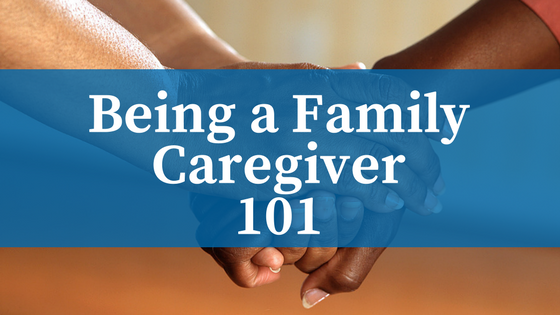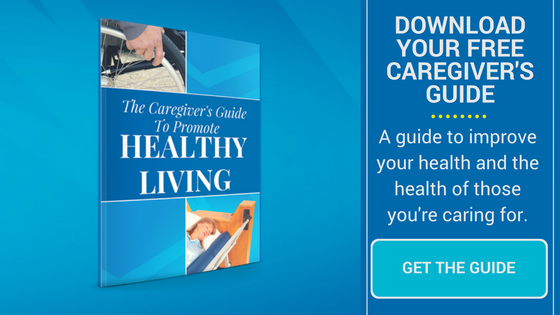
As a family caregiver for an immobile loved one, you have a lot on your plate. It’s not only a life-altering decision to manage your own stresses, but to take on the additional unique day-to-day tasks to maintain “Quality of Life” for another person is no small feat. To begin, take a good look in the mirror and know that you are to be commended. You’re making a monumental difference in the life of your loved one, and they will never forget it.
Being a family caregiver is full of subtle tasks and details that only experience and familiarity will prepare you for, and that’s to be expected. Part of developing this new relationship with your family member is embracing change and collectively coming up with systems and practices that benefit them, and you.
While these tasks can take precedence, it’s incredibly vital that you don’t neglect yourself throughout your time as a primary caregiver. Time to yourself, even for a mid-morning coffee, or time to watch the game on the weekend are things you’re entitled to. Remember that balance is critical to maintaining a positive and healthy relationship.
Sleep
Sleep is important for a number of extremely good reasons. Sleep is your body’s natural way of refuelling, refreshing, and resetting itself - deny yourself the proper amount of sleep, and your ability to care for your loved one, and yourself will inevitably begin to suffer.
Sleep is a key part of a healthy lifestyle, and benefits heart health, your mental clarity, even your weight. Studies have shown that adequate sleep can assist the brain in learning new skills, an integral aspect of becoming a primary in-home caregiver. Sleep also helps to curb inflammation in the body, linked to heart disease, diabetes, stroke and arthritis.
Taking shorter and shorter sleeps, as well as interrupted sleep patterns can contribute to inflated levels of cortisol - stress hormones - in the body. Cortisol is directly linked to heart attacks and high blood pressure, and makes the heart work harder when it doesn’t get the rest it needs. Interrupted sleep patterns take a toll on caregivers due to needing to turn and accommodate the comfort of their loved ones. This makes self-turning sleep apparatus like the Freedom Bed an invaluable resource for family caregivers who collectively learn that sleep is integral to quality care.
Further, appropriate sleep from 7-9 hours/night has the ability to assist in strengthening the immune system. Taking fewer sick days is a clear advantage to those responsible for the care of their loved ones, and sleep can help to fend off common cold, flu and other infectious bugs that can affect us for days on end. Sleep also aids immunizations in their effectiveness.
Support
Providing mental and physical support to your loved one is of great benefit to them. As a family member, there’s a level of inherent dignity that will accompany your involvement, rather than professional in-home aid. Having a family member to talk to, share their experiences with, and grow with are irreplaceable feelings that help to develop feelings of comfort, social belonging, and of respect.
For caregivers, accept your feelings. They can include resentment, anger, frustration, guilt, and even helplessness. It’s incredibly important that you’re able to assess and recognize these emotions - they do not mean that you don’t care about your loved one, they just mean you’re a human being who has their own emotions to reckon with.
You may find that you continually worry about administering the additional help and support in caring for your family member or loved one, especially in the beginning. You may also feel guilty for not doing more, or that you find it difficult to be “better”, having more patience, or not being available sometimes.
Don’t try to do it all - you can’t, and your loved one doesn’t expect you to. It’s best to have a clear vision of what your relationship is with your loved one, and to know ahead of time how you can build this relationship. Further, you’re going to need support for yourself. You can turn to your church, other family members and friends for advice - or just someone to listen who won’t judge - a caregiver support group, therapist or support worker.
Giving yourself the opportunity to discuss your emotions is key to accepting help and making the best of exhausting situations. Without accepting support in many forms, you’ll inevitably burn out, and your relationship with your loved one may suffer.
Independence/ Personal Time
Your own independence is also a big issue with many family caregivers. Many feel as though they have little independence and are tied to a home or wherever your loved one resides. Ensuring you can get away and live your own life apart from being a family caregiver is not selfish - it’s a requirement of a meaningful human life experience. You must give yourself the opportunity to live, and experience your own life on your own terms.
While being a family caregiver is a great responsibility and honor, making sure you can give yourself the time to escape to a movie, a concert, a dinner date, or any other forms of outside entertainment and de-stressers is a big part of remaining dedicated to the role. As the old saying goes: “All work, no play makes Jack a dull boy.”
You need to release hormones of stress to trigger your biological system to reboot every now and then - it’s all part of being human. When done correctly, being a family caregiver can be very rewarding, and giving yourself the opportunity to seek some solace in personal time is part of the experience.
Similarly, your loved one will surely accept and respect your need for alone time - they need this too. Personal independence, even for a short time can be validating for them in a sense that they can still attain privacy and respite from their routine. Discuss with your loved one the need for both of you to have some personal time each week, and plan a schedule that accommodates your own independence from roles of caregiver/recipient.
Quality of Life
The all-encompassing Quality of Life factor is the tallest order to achieve while undertaking the role as family caregiver. You’ve accepted this role because you believe in giving your loved one the “Quality of Life” they very much deserve, and you’ve done it because you believe in taking care of your loved ones. Period.
Attaining quality of life is attributed to many subcategories but is rooted in identity/engagement, memory and projection of Ideals, your beliefs, creativity and recreation, learning, well-being and health, and the big one - overall happiness. Giving yourself the opportunity to bring happiness to your loved one via family care is a gift that we should all be so fortunate to provide. It’s value is seemingly priceless.
As a caregiver, you ultimately deserve happiness as well. Communication and openness is an excellent way to achieve happiness within your support network. Be open to accepting help, new ideas, and be sure to take time for yourself - you’ll be a better caregiver for it.


